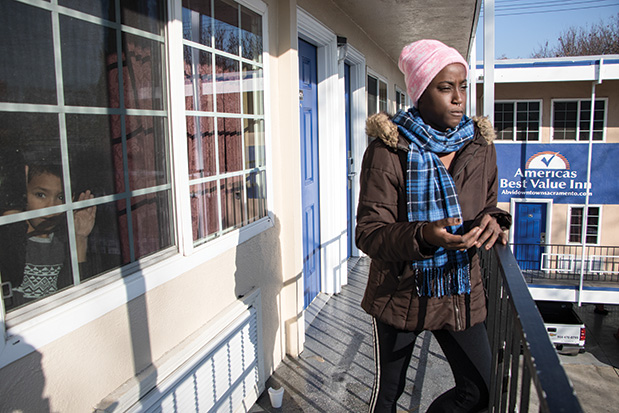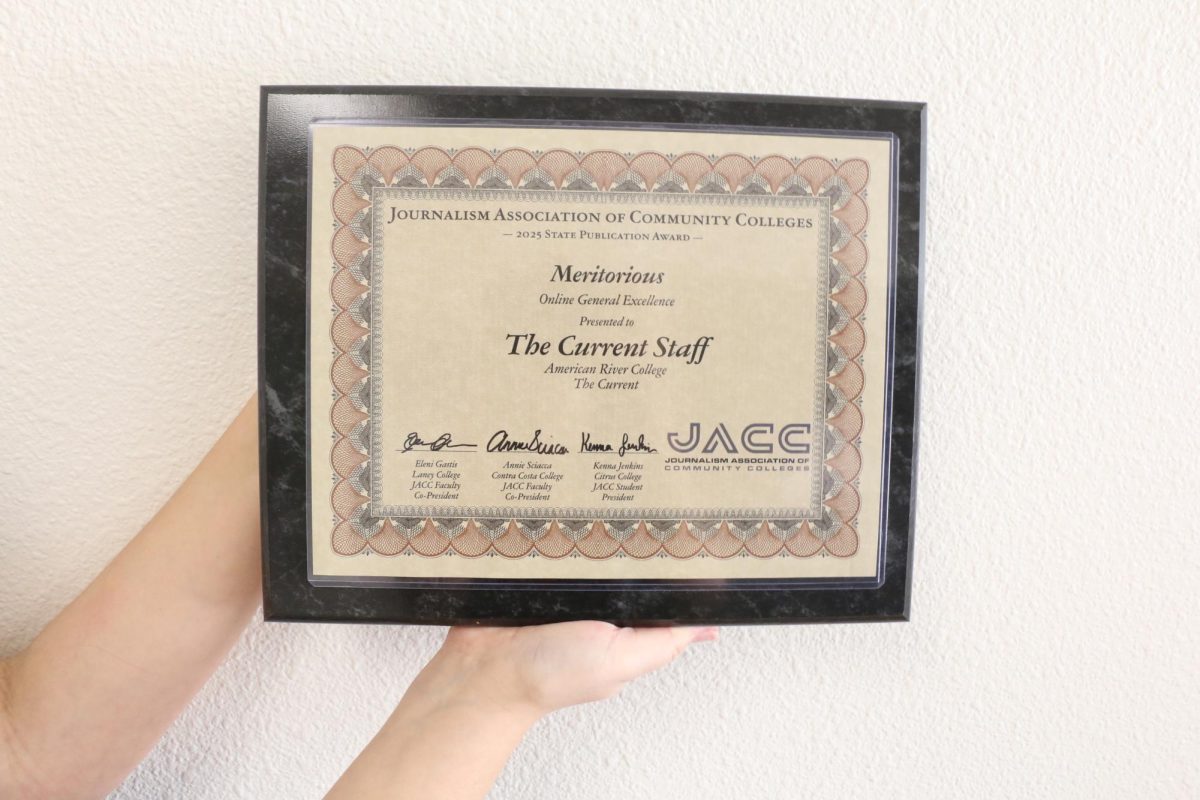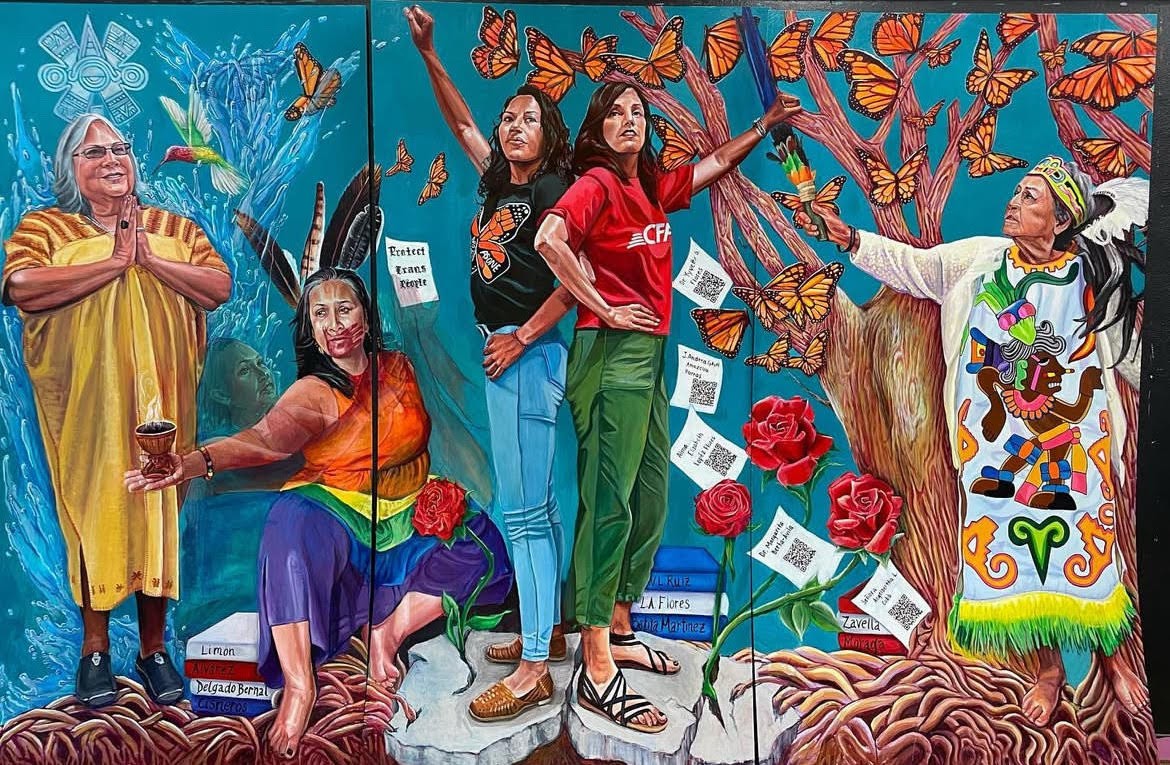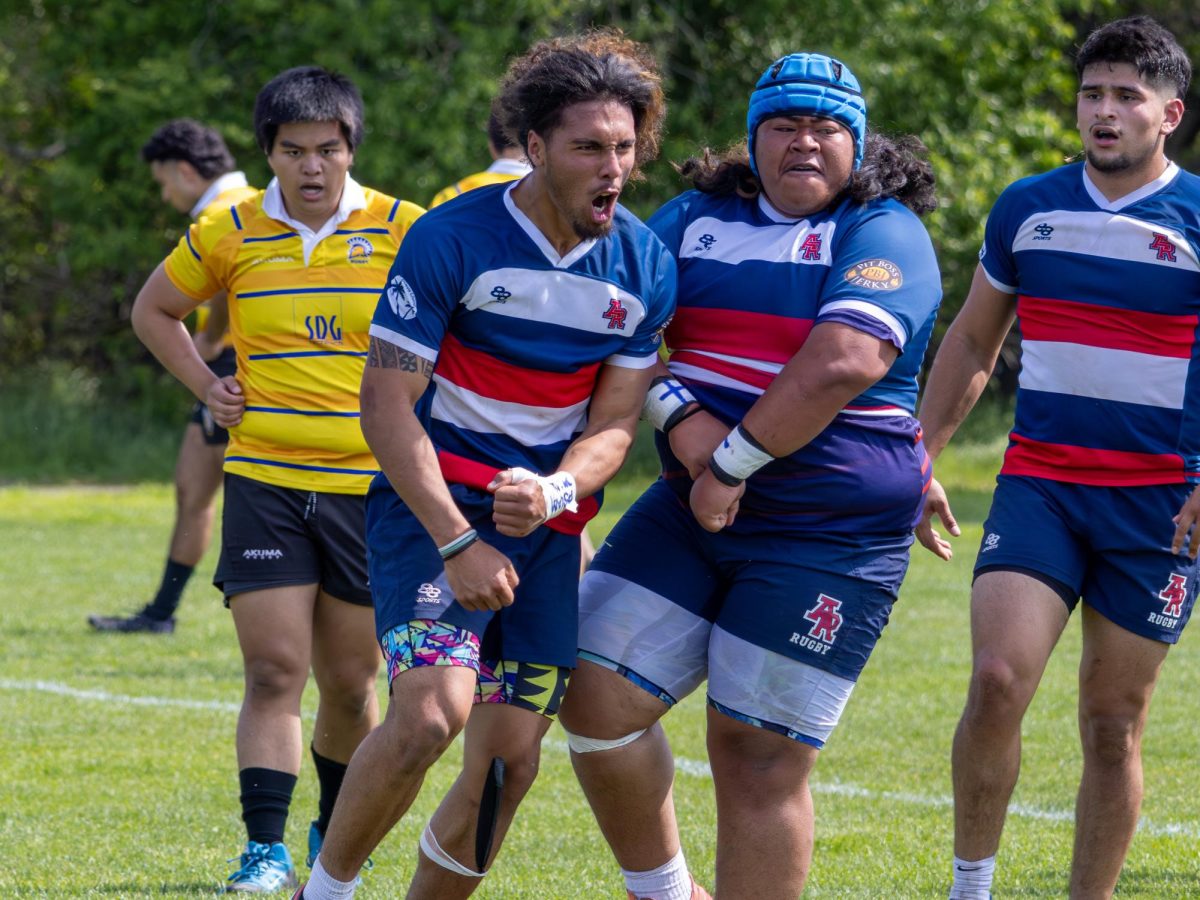It’s morning and Courteney Duren-Hill wakes up to her alarm going off in her living room at her single-wide mobile home in Caravan Village near Watt Avenue and Auburn Boulevard. Sighing, she lays in bed for a minute and stares at the wooden panel walls that make up her home, then looks down at the half-packed bags that litter the floor.
She sits up, rubs her temples and walks past the kitchen into the narrow hallway that leads to her 5-year-old son Gavin’s room. She gently whispers into her son’s ear to wake him for school. Gavin shoots out of bed and races to the kitchen to get breakfast as Duren-Hill slowly treads behind him.
After breakfast, as Gavin gets ready for school, Duren-Hill looks out of the window to the front yard at the little wooden gate that a neighbor made when Gavin was younger so he wouldn’t run out. As she reminisces, she looks down again at the packed bags, which remind her that their 30 days was almost up and she and her son would soon be forced to leave their home, with nowhere to go.
“It was really stressful because I didn’t know where to start and the move out date was approaching soon,” Duren-Hill said. “I got a 30-day notice because the rent was raising and I was behind and I couldn’t keep up.”
Duren-Hill’s situation isn’t uncommon among community college students and is an issue that administration is aware of. According to the Assembly Speaker’s Office of Research and Floor Analysis, one in four community college students have experienced homelessness in recent years.
Duren-Hill was attending ARC, studying to be an American Sign Language interpreter, when she lost her home during the spring 2018 semester. During that time, she benefited from some of the college’s resources for students, including meal vouchers from Extended Opportunity Programs and Services (EOP&S) and CalWORKS, two of the many programs on campus that assist students in need.
Now, Duren-Hill is on academic probation and doesn’t currently attend ARC; meanwhile many students like her continue to benefit from the same programs she did.
Funded by the state and the Los Rios Community College District, the EOP&S program helps support college students who are in educational and financial need by providing access to tutoring, enrollment assistance, educational planning and limited financial assistance.
Kaela Vivian, who works as Clerk III at the EOP&S center, spoke about some of the benefits the center provides students, mainly counseling and tutoring. EOP&S can also help students pay for fee waivers when they apply to California State University or University of California colleges. When the program has the necessary finances it provides books, school supplies, meal vouchers and gas cards.
According to Vivian, specific programs under EOP&S give more services. For example, the Foster Youth program supplies students with gift cards to help pay for groceries and household essentials.
The Cooperative Agencies Resources for Education (CARE) program, is also offered under EOP&S and gives aid to head of household single parents by providing them with gift cards, gas cards and care packages monthly.
EOP&S services are available all semester, except for summer, and the applications are available one or two months before a new semester starts. Students who are interested in applying for fall 2019 can check in April at the EOP&S office to see if applications are available.
“It’s a great program, we try to help out everyone,” Vivian said. “We are always trying to help homeless people, single parents, anything you can think of we are always trying to help students.”
Another program on campus that assists students in need is the CalWORKs program, which is located in the Student Services building next to EOP&S. This program benefits students by offering educational planning, work-study opportunities and career preparation. To qualify, students must be receiving cash aid from Temporary Assistance to Needy Families (TANF).
Student Services Supervisor Breanne Holland describes the program as a way of motivating students to further their education in addition to obtaining a job.
“Welfare tends to push people to just get a job and we don’t believe in that. We believe that instead of welfare to work, it is education to career,” Holland said. “Statistics have long proven the higher your education, the more likely you are to earn money, the more sustainable career and that’s what our motivation is in here.”
CalWORKs has one of the largest work-study programs in the state and puts 80 to 100 students to work, on and off campus, each semester. CalWORKS also supplies students with school supplies and gives students access to a lending library which allows students to use textbooks from the bookstore until they can pay for their books. The programs also assists with student transportation as well, like giving gas cards to get to school or workshops to help with their education or career goals, according to Holland.
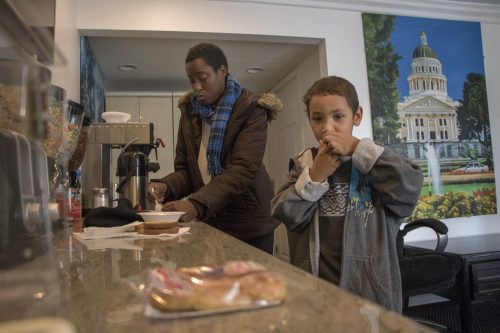
Duren-Hill reflected on how certain programs provided at ARC helped her while she was going to school.
“I felt like the most helpful programs were CalWORKs and the CARE program because they provided food and a way to get to school and back,” Duren-Hill said.
ARC’s Student Services division is aware of students in need, so in an effort to increase communication between programs, the Student Services Building and the Student Center teamed up during winter break. They started a shared Google Drive, a file storage service, where they are now in constant communication. They have resources to help direct students that show up to either place, according to Student Life Supervisor Brett Sawyer.
“We started it so if a student were to come to one of those programs and say ‘This is my situation,’ we can instantly provide resources,” Sawyer said.
When it comes to finding a place to live, the Student Center keeps a binder where students can find places to rent, as well as to leave their information for others who are looking for tenants. The students workers in the Student Center are currently in the process of getting that information online, according to Sawyer.
The Universal Engaging Inclusive Transforming Education (UNITE) program also has a list of shelters, non-profits and food banks that they have verified for students. They also made care packages last semester for students in need and the leftovers were donated to the victims of the wildfire in Paradise.
The school also provides students with the Beaver Food Pantry, which is held twice a month in front of the gym. The college’s Hunger Resources Committee gets the food from the Sacramento Food Bank & Family Services and encourage students and staff to bring their own bag.
Duren-Hill says that despite all of its services, she feels that the school should also provide a space where students in need can voice their concerns to a group of people who can affect change on campus.
“I wanted it be like a panel of important people to the school, who will listen and could actually make real change,” Duren-Hill said. “It would make students feel like they have a voice and they aren’t just a number.”
After months of moving motel to motel, she now finds herself living in a shelter. Despite her current struggle with housing, Duren-Hill says she hopes to finish her education because she understands the importance of having a degree.
“I want to go back to school to get a better future for my child and have a career or trade that gets me ahead in life,” Duren-Hill said.


